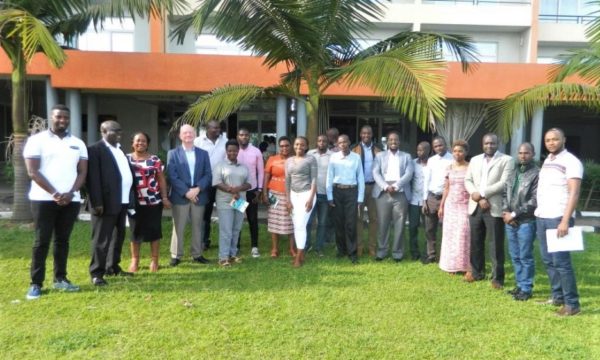
January 24th is the United Nations’ International Day of Education, a celebration of the role of education for peace and development. The Sustainable Development Goals are rightly driving many projects amongst the world’s poorer nations and people groups, and online learning is playing a part in a lot of these projects. In honour of Education Day, here we explore how and why.
Understand the problem
When thinking about education and training, there are often (not always) three related problems that arise:
- There are not enough “teachers” in the right places, with sufficient knowledge and experience
- There are too many people for the teachers we do have
- Many people are not in urban centres and therefore difficult to reach
Define the solution
Including digital materials as part of the teaching approach can mitigate all these problems.
- Consistency: It means we can create a single source of expert knowledge, with strong educational design. This can then be used by facilitators or group leaders on the ground, who may not have the subject matter expertise but can help implement the ideas locally.
- Scale: It means we can get the teaching materials directly into the hands of the people who need to be taught, or as close as possible. Of course, that depends on constraints such as literacy and access to technology – but even these have solutions.
- Reach: It means we can overcome geographical constraints by making efficient use of digital networks.
Examples
It’s interesting to look at how people are approaching these problems, and the wide range of solutions on offer. There have been many small scale projects, which often have proved to be unsustainable, so I’ll try to focus on those that seem to have some longevity.
FAO Elearning Centre
The FAO’s courses are aimed at people working professionally in agriculture and development – primarily at a policy level. The model is quite simple: An extensive catalogue of self-study materials, all freely accessible to any registered user. It’s funded mostly by the EU, and has reached over 375,000 users since launching in 2005.
COLEACP
COLEACP work with people across the Africa, Caribbean and Pacific regions. Like FAO they’ve got a large catalogue of self-study courses in agriculture and related subjects, which are designed to support their face-to-face programmes. These courses tend to be more practitioner focussed than those of FAO. It is also funded significantly by the EU.
Access Agriculture
Access Agriculture provide a suite of freely available training videos aimed at farmers and their advisors across the Global South. They are supported by individual sponsorship and partnerships with a range of donor organisations, with the majority from the Swiss Agency for Development and Cooperation.
Agrilinks
The Food Safety Network has produced this set of Plant Health distance learning modules, primarily aimed at advisors and government workers. They are funded by US Aid and the USDA, and are freely available.
Rainforest Alliance
The Rainforest Alliance’s set of freely-available video-based courses cover their priority areas of climate change and sustainable agriculture.
CABI Academy
The CABI Academy is a growing resource for self-study, blended learning support and professional/career development. Our vision is for it to cover all the areas that CABI works in, including agriculture, animal science and tourism. As a starting point, we’ve created a suite of modules that complement the Plantwise global programme – which has already supported over 30 million smallholder farmers since its launch in 2011.
If you want to know more about the CABI Academy, please get in touch with Mark Berthelemy
Related News & Blogs
Entrepreneurship in Agribusiness course launched by the CABI Academy
The CABI Academy, an online learning platform that addresses a range of agricultural challenges faced by smallholder farmers around the world, has launched a new free short course on Entrepreneurship in Agribusiness. This self-led course provides guida…
15 August 2024




